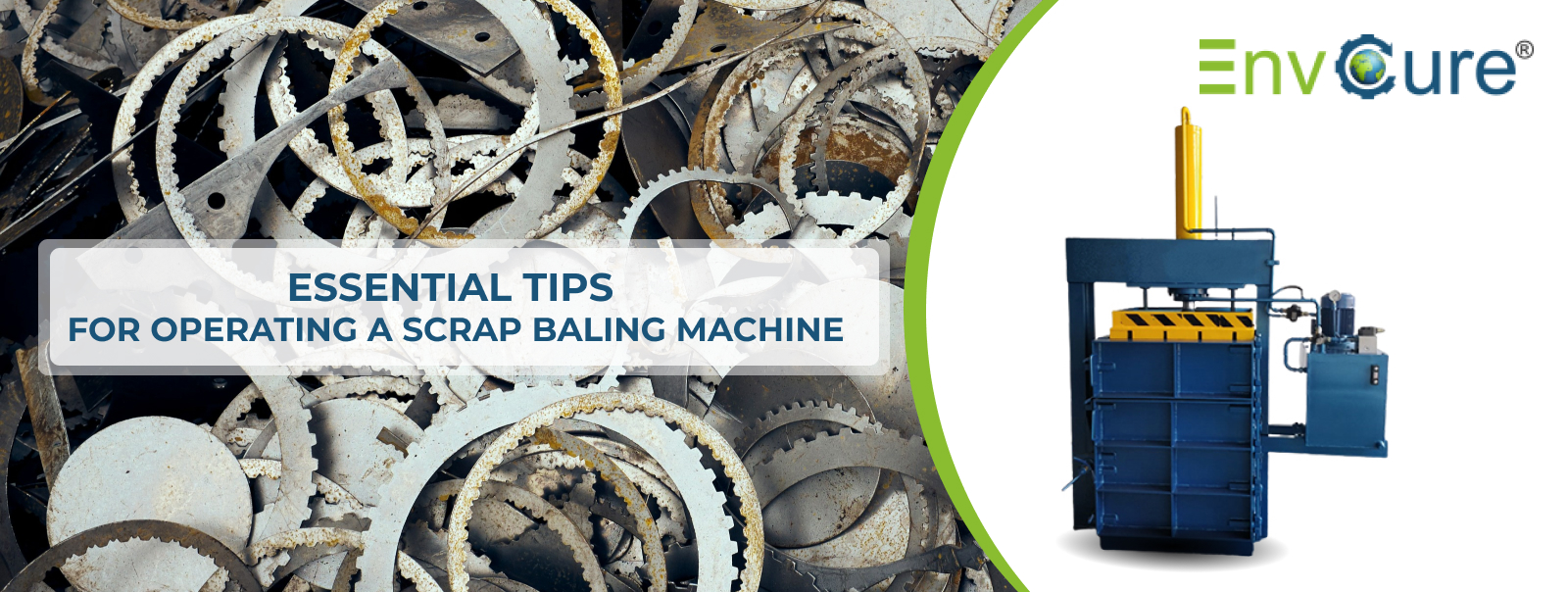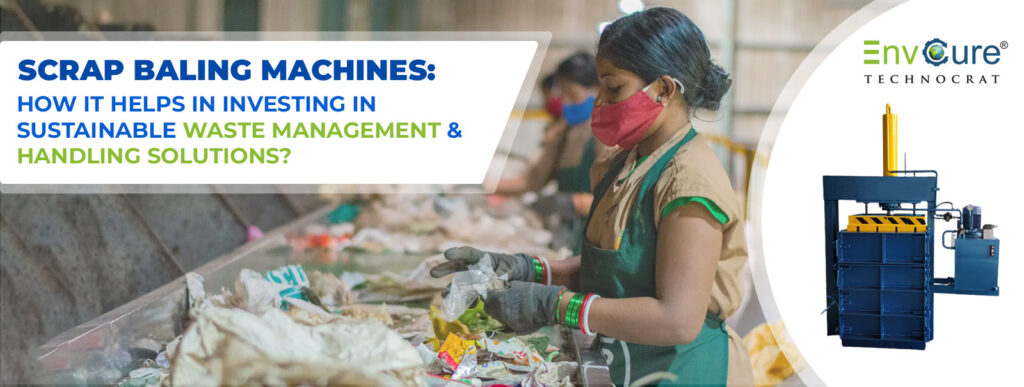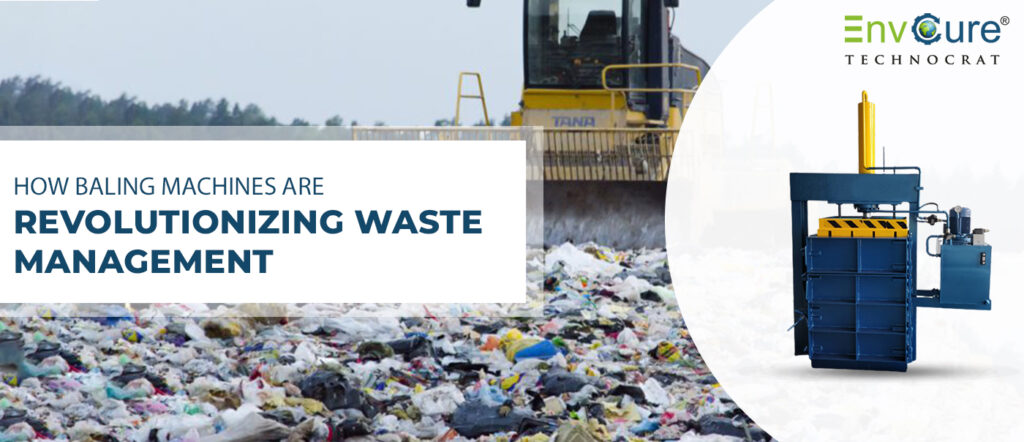A scrap baling machine is a powerful piece of equipment used to compact and bale large amounts of scrap and waste materials. These machines are commonly used by manufacturing companies to deal with paper, cotton, and metal scraps, while the retail and service industries utilize them for cardboard and paper waste. Operating a Scrap Baling Machine requires adherence to strict safety protocols and efficient maintenance practices to ensure optimal performance and avoid injuries. Here are some essential tips to keep in mind when working with these machines:
-
Safety First
Operating a Scrap Baling Machine demands strict adherence to safety protocols to prevent injuries and ensure smooth operations. Understanding the machine’s design, especially safety features like emergency stops and interlocks, is crucial. Regular checks for any signs of wear or malfunction are necessary to maintain these systems effectively. Safety barriers should be employed to restrict access during operation, preventing unauthorized or unsafe use
- Before Operation: Conduct thorough daily inspections to check for potential hazards like loEnsure the scrap baling machine is idle for about three minutes before operation, and test the oil tank for any leaks. Pay attention to the usual sounds of the engine, hydraulic unit, valves, fittings, and piston, as any unusual noises may indicate a problem.
- Emergency Protocols: Ensure that emergency stop buttons are functional and accessible, and train all operators on how to use them effectively.
- Interlocks and Guards: Maintain mechanical guards and safety interlocks to prevent accidental starts during maintenance or when the chamber is open.
-
Operator Training
Training is a vital component of operating a Scrap Baling Press Machine. It should cover all aspects of operation, maintenance, and emergency handling. Only trained personnel should operate the machine to ensure they understand the operational procedures and can identify potential hazards.
- Training Programs: Include hands-on sessions that cover the machine’s operations, maintenance, and troubleshooting.
- Certification: Operators should be certified after completing training programs that include safety protocols and operational procedures.
- Ongoing Training: Regular refresher courses to update the operators on new safety protocols and operational techniques.
-
Maintenance and Housekeeping
Regular maintenance is key to the longevity and optimal performance of your baling press machine. Implement a comprehensive maintenance program that includes general housekeeping practices.
- Scheduled Maintenance: Keep the machine and its surroundings clean, paying special attention to areas like behind the ram(s), sensors, and the oil cooler. Regular cleaning prevents fires, reduces the risk of overheating, and minimizes oil contamination.
- Oil Maintenance: Establish an oil maintenance program. Oil is the lifeblood of your baling press machine, so it is crucial to sample and test it regularly—approximately every 1,200 operating hours. Send the samples to a reputable oil analysis company to identify any contamination and address issues promptly.
- Clean Work Environment: Keep the area around the baler clean and free of debris to avoid accidents. Regularly clear out waste materials that can build up and cause jams.
- Record Keeping: Maintain logs of maintenance activities and any issues encountered during operation to help diagnose problems and plan preventive maintenance.
-
Understanding Materials
Proper material handling and understanding are critical to maximizing the efficiency of a Scrap Baling Machine. The materials suitable for baling vary and include recyclables like cardboard, paper, plastic, and metals, which should be sorted and prepared before baling to enhance processing efficiency and bale quality. This preparation involves removing contaminants and non-recyclable items, which helps prevent machine damage and ensures high-quality bales.
- Sort and Prepare: Implement rigorous sorting to separate materials based on type and quality. This reduces contamination and ensures only suitable materials are processed.
- Understand Material Characteristics: Different materials require specific handling and baling pressures. Knowledge of material characteristics can optimize the baling process and prevent machinery wear.
- Continuous Feed: Utilize systems that allow for the continuous feeding of materials, such as conveyor belts, to maintain a steady and efficient baling operation.
-
Routine Inspections:
Routine inspections maintain the operational integrity and safety of a Scrap Baling Machine. Regular checks help identify potential mechanical issues or safety hazards before they lead to operational downtime or accidents. Effective inspection routines can significantly extend the life of baling equipment and enhance safety on the production floor.
- Daily Checks: Perform daily visual and functional checks to assess the hydraulic systems, electrical components, and structural integrity of the baler.
- Maintenance Schedule: Follow a strict maintenance schedule to check for wear and tear, lubricate moving parts, and replace worn-out components.
- Documentation and Records: Keep detailed records of inspections, maintenance activities, and any repairs done to track the machine’s condition and predict future maintenance needs.
Conclusion: EnvCure’s Commitment to Sustainability
At EnvCure, our commitment extends beyond providing top-tier equipment. We believe in empowering our clients to make substantial environmental contributions through the proper use of technology. Operating a scrap baling machine not only streamlines waste management but also supports recycling initiatives, reducing the ecological footprint of industrial activities. We understand the challenges posed by recyclable and non-recyclable waste, and through innovation, we aim to offer solutions that benefit both our clients and the planet.
For more detailed guidance and to ensure you’re using your scrap baling machine to its fullest potential while adhering to safety standards, always consult the manufacturer’s instructions and stay updated with the latest safety protocols.
Frequently Asked Questions:
Q.1. What safety precautions should I take before operating a scrap baling machine?
Ans. Before starting, ensure all safety guards are in place and operational. Wear appropriate personal protective equipment (PPE) such as gloves and safety goggles. Familiarize yourself with emergency shutdown procedures.
Q.2. How do I properly prepare scrap materials for baling?
Ans. Remove any non-metallic or hazardous materials from the scrap. Ensure the material is clean and free of excessive moisture, as this can affect baling efficiency and the quality of the bales.
Q.3. How do I troubleshoot common issues with a scrap baling machine?
Ans. Common issues include jamming, hydraulic leaks, or improper bale formation. Refer to the machine’s troubleshooting guide. Keep the machine properly maintained and serviced regularly to minimize downtime.








